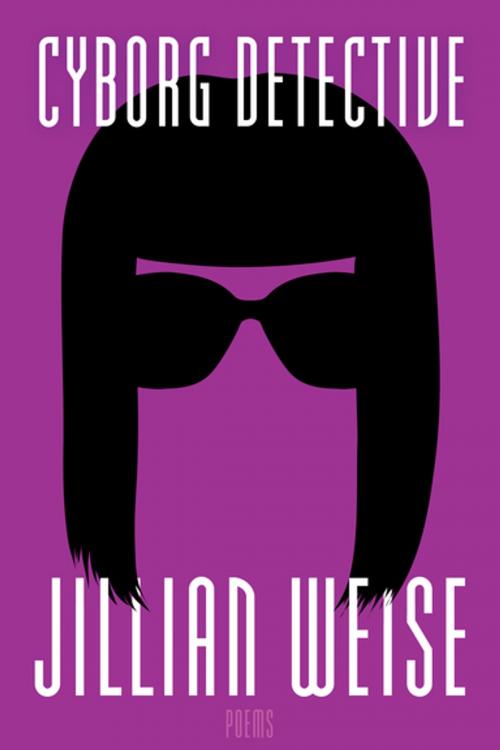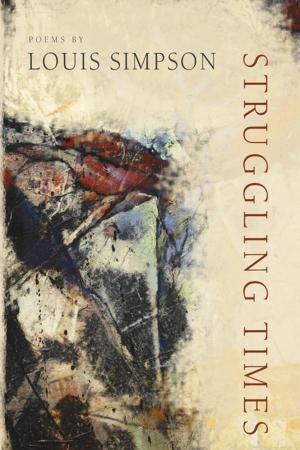Cyborg Detective
Nonfiction, Social & Cultural Studies, Social Science, Disability, Fiction & Literature, Poetry, American| Author: | Jillian Weise | ISBN: | 9781942683865 |
| Publisher: | BOA Editions Ltd. | Publication: | September 3, 2019 |
| Imprint: | BOA Editions Ltd. | Language: | English |
| Author: | Jillian Weise |
| ISBN: | 9781942683865 |
| Publisher: | BOA Editions Ltd. |
| Publication: | September 3, 2019 |
| Imprint: | BOA Editions Ltd. |
| Language: | English |
First printing: 3000 copies (trade paper).
Cyborg Detective is Jillian Weise’s third poetry collection. Her first book, The Amputee’s Guide to Sex, was re-released in a tenth-anniversary edition with a new preface by the author in 2017. Her previous collection, The Book of Goodbyes (BOA, 2014), won the 2013 James Laughlin Award from the Academy of American Poets and the Isabella Gardner Award from BOA Editions.
HOT TOPIC: This book takes an active stance on disability rights, in particular the #NothingAboutUsWithoutUs model of disability activism and the fact that even in the present-day, the voices of people with disabilities are often sidelined in conversations about diversity, human rights, accessibility, and progressive politics.
Jillian Weise is a leading public intellectual writing about disability. She self-identifies as a cyborg and has a computer prosthetic for a leg. Her essays about cyborg identity, which critique transhumanist philosophies and Donna Haraway’s 1985 “The Cyborg Manifesto” as overlooking disabled people who rely on technology to survive, have been published in The New York Times and Granta. Weise’s essay, “Common Cyborg,” was the second most read article in Granta in 2018 and was featured as a Best Read of 2018.
Weise performs an ongoing series of satirical videos called “Tips for Writers with Tipsy Tullivan.” These performance art videos confront ableism in literary spaces and academia. One such video, “How to Write for The New York Times,” has had over 25k views on Facebook.
This book will have strong appeal for academics looking to expand the conversation about diversity and intersectional feminism in their reading lists. It will also have strong appeal for college administrators, healthcare workers, social workers, and nonprofit/faith-based organizations serving people with disabilities (e.g. L’Arche, MOSAIC, etc.).
Strong regional appeal in the Deep South, Appalachia, and other regions with high rates of disability.
First printing: 3000 copies (trade paper).
Cyborg Detective is Jillian Weise’s third poetry collection. Her first book, The Amputee’s Guide to Sex, was re-released in a tenth-anniversary edition with a new preface by the author in 2017. Her previous collection, The Book of Goodbyes (BOA, 2014), won the 2013 James Laughlin Award from the Academy of American Poets and the Isabella Gardner Award from BOA Editions.
HOT TOPIC: This book takes an active stance on disability rights, in particular the #NothingAboutUsWithoutUs model of disability activism and the fact that even in the present-day, the voices of people with disabilities are often sidelined in conversations about diversity, human rights, accessibility, and progressive politics.
Jillian Weise is a leading public intellectual writing about disability. She self-identifies as a cyborg and has a computer prosthetic for a leg. Her essays about cyborg identity, which critique transhumanist philosophies and Donna Haraway’s 1985 “The Cyborg Manifesto” as overlooking disabled people who rely on technology to survive, have been published in The New York Times and Granta. Weise’s essay, “Common Cyborg,” was the second most read article in Granta in 2018 and was featured as a Best Read of 2018.
Weise performs an ongoing series of satirical videos called “Tips for Writers with Tipsy Tullivan.” These performance art videos confront ableism in literary spaces and academia. One such video, “How to Write for The New York Times,” has had over 25k views on Facebook.
This book will have strong appeal for academics looking to expand the conversation about diversity and intersectional feminism in their reading lists. It will also have strong appeal for college administrators, healthcare workers, social workers, and nonprofit/faith-based organizations serving people with disabilities (e.g. L’Arche, MOSAIC, etc.).
Strong regional appeal in the Deep South, Appalachia, and other regions with high rates of disability.















